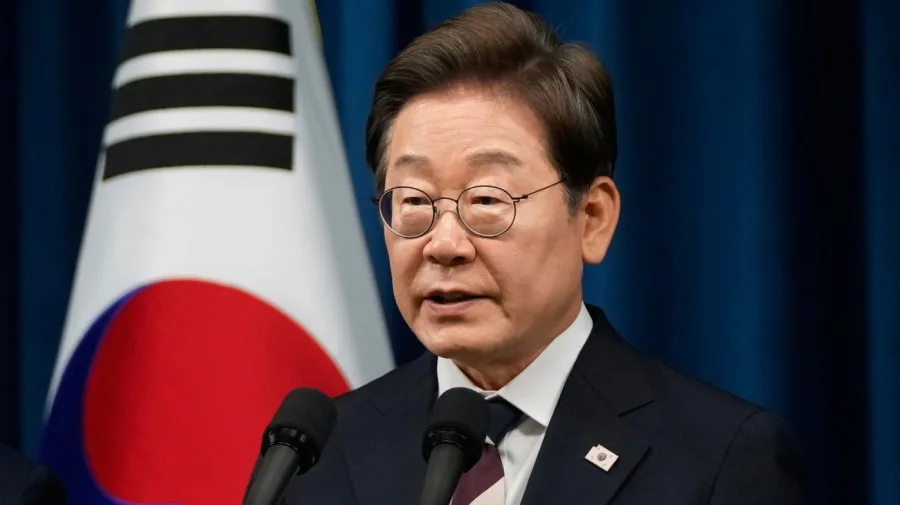When reports first surfaced about a US military raid in South Korea that allegedly involved excessive use of force and potential violations of international law, it quickly ignited debates in both Seoul and Washington. The incident has forced South Korean officials to open a formal investigation into human rights concerns, putting the alliance between the two countries under rare public scrutiny. For decades, South Korea has hosted US troops as a cornerstone of its security strategy, particularly in the face of tensions with North Korea. But this recent controversy is prompting questions about whether the price of security comes at the cost of human rights, accountability, and sovereignty. At its core, the issue highlights the delicate balance between military necessity and the protection of civilians, a challenge that nations hosting foreign troops have grappled with for generations.
- The Raid That Sparked Controversy
- Historical Context of US Military Presence in South Korea
- South Korea’s Human Rights Framework
- Washington’s Response and Defense
- The Status of Forces Agreement and Its Controversies
- Public Reaction and Media Coverage
- The Broader International Implications
- Expert Opinions on Human Rights and Security
- Possible Outcomes of the Investigation
- A Test of South Korea’s Democracy
- FAQs
- What triggered South Korea’s investigation into the US military raid?
- What role does the Status of Forces Agreement play in this case?
- How has the South Korean public reacted to the raid?
- What are the possible outcomes of the investigation?
- How might this affect the US-South Korea alliance?
- Conclusion
The Raid That Sparked Controversy
According to initial reports, the US military raid was conducted in the outskirts of a South Korean city where American forces were pursuing what they described as a high-priority security target. Details remain murky, but eyewitnesses claim the raid led to property destruction, civilian injuries, and possible violations of South Korean law. Some accounts suggest that South Korean police were neither properly informed nor given oversight of the operation. Human rights organizations in Seoul have argued that such unilateral action undermines South Korea’s sovereignty and risks violating international treaties on the treatment of civilians. For the South Korean public, these allegations evoke memories of past incidents involving foreign troops, further fueling calls for stronger accountability.
Historical Context of US Military Presence in South Korea
The United States has maintained a continuous military presence in South Korea since the Korean War armistice in 1953. With nearly 28,500 troops stationed on the peninsula, the US plays a critical role in deterring North Korean aggression and upholding regional stability. Yet, the presence of foreign troops has not been without controversy. Over the decades, there have been high-profile cases of crimes, accidents, and disputes involving US service members and South Korean civilians. While many South Koreans value the protection provided by the US military, others see their presence as a source of tension and occasional injustice. The current investigation into human rights concerns comes against this backdrop of a complicated but enduring alliance, where questions of accountability have often surfaced alongside strategic necessity.
South Korea’s Human Rights Framework
South Korea has built a strong legal framework around human rights, particularly after transitioning from military rule to democracy in the late 20th century. The country is a signatory to multiple international conventions, including the International Covenant on Civil and Political Rights. Domestically, its constitution enshrines the protection of fundamental rights such as dignity, equality, and due process. In light of this, South Korea’s Ministry of Justice has announced that the investigation into the US military raid will be guided not only by domestic law but also by international human rights standards. Legal experts warn that if violations are confirmed, Seoul may be forced to demand accountability measures from Washington, potentially straining diplomatic relations.
Washington’s Response and Defense
The US military command in South Korea has responded cautiously, emphasizing that the operation was carried out in line with established protocols and aimed at ensuring security. Officials have expressed regret over any civilian harm but stopped short of admitting wrongdoing. A spokesperson stated that “all operations are conducted with the utmost care to minimize risks to local communities.” Privately, however, some analysts note that Washington is wary of setting a precedent where foreign courts or institutions scrutinize its military operations. Historically, the United States has sought to maintain jurisdiction over its troops abroad through agreements like the Status of Forces Agreement (SOFA). In this case, SOFA could play a pivotal role in determining how accountability is enforced.
The Status of Forces Agreement and Its Controversies
The US-South Korea Status of Forces Agreement, signed in 1966, governs the legal status of American military personnel in South Korea. While it outlines cooperation between the two governments, it has also been a point of contention. Critics argue that the agreement often favors the US by allowing American authorities to retain jurisdiction over military personnel accused of crimes while on duty. Human rights groups contend that this undermines South Korea’s sovereignty and denies justice to victims. The recent raid once again brings SOFA under the spotlight, as many South Koreans demand revisions to ensure greater transparency and fairness. For South Korea’s government, balancing public pressure with the strategic need for US forces remains an ongoing challenge.
Public Reaction and Media Coverage
South Korea’s media has covered the story extensively, with headlines questioning whether human rights are being sacrificed for military expediency. Protesters have gathered outside government buildings in Seoul, demanding accountability and even calling for a reduction in US troop presence. Opinion polls suggest that while a majority of South Koreans continue to support the alliance with the US, trust in how American forces operate within the country has declined. Civil society organizations, including the Korean Bar Association and local NGOs, have also joined the conversation, urging the government to conduct a transparent investigation and hold both parties accountable. In contrast, conservative outlets stress the importance of maintaining strong ties with Washington, warning that public anger could weaken deterrence against North Korea.
The Broader International Implications
This investigation has implications beyond the Korean Peninsula. Around the world, US military bases have often been the subject of controversy, from Okinawa in Japan to Germany and the Middle East. Issues of jurisdiction, human rights, and civilian safety frequently arise wherever foreign troops are stationed. South Korea’s inquiry could set a precedent for other host nations to demand greater oversight of US military activities. Analysts suggest that if Seoul takes a firm stance, it might embolden other allies to push for revisions to their own agreements with Washington. On the other hand, a weak or inconclusive investigation could reinforce perceptions that the US military remains beyond meaningful accountability in foreign territories.
Expert Opinions on Human Rights and Security
Human rights experts argue that the incident highlights a growing tension between national security and human dignity. Professor Kim Ji-hoon, a political scientist at Seoul National University, noted that “while security alliances are essential in today’s volatile world, they cannot come at the cost of ignoring international human rights obligations.” Meanwhile, defense analysts caution that undermining the credibility of the US-South Korea alliance could embolden adversaries such as North Korea or even China. They stress the need for a balanced approach where both security and rights are protected. This dual challenge underscores the complexity of hosting foreign troops in a democratic society where public opinion cannot be ignored.
Possible Outcomes of the Investigation
The South Korean government faces several options depending on the investigation’s findings. If evidence of human rights violations is confirmed, Seoul may press Washington for a formal apology, compensation to victims, or even revisions to the SOFA. In extreme cases, South Korea could restrict the scope of US military operations within its borders. However, such steps could risk tensions at a time when regional security threats are rising. Alternatively, if the investigation downplays or dismisses the allegations, it could spark domestic outrage and damage public trust in government institutions. Either outcome will have significant political, legal, and diplomatic repercussions, making the process one of the most closely watched issues in South Korea today.
A Test of South Korea’s Democracy
At its heart, this controversy is more than a bilateral dispute—it is a test of South Korea’s democratic values. The government must demonstrate that it can hold even its most powerful ally accountable when human rights are at stake. For many South Koreans, the issue symbolizes the ongoing struggle to assert sovereignty and dignity in the shadow of global power dynamics. How Seoul manages the investigation will shape not only its relationship with Washington but also its credibility as a defender of human rights on the international stage.
FAQs
What triggered South Korea’s investigation into the US military raid?
The investigation was triggered by reports of excessive force, civilian harm, and potential violations of South Korean law during a US military operation. Eyewitness accounts and pressure from human rights groups pushed the government to formally examine the incident.
What role does the Status of Forces Agreement play in this case?
The Status of Forces Agreement (SOFA) outlines legal jurisdiction over US troops in South Korea. Critics argue that it often shields American personnel from South Korean prosecution, which has raised concerns of unfairness in cases like this.
How has the South Korean public reacted to the raid?
Public reaction has been mixed but largely critical. Protests have emerged, and opinion polls show declining trust in the US military’s operations, though many South Koreans still value the alliance for national security reasons.
What are the possible outcomes of the investigation?
Depending on the findings, Seoul may seek apologies, compensation, or even revisions to military agreements. Alternatively, downplaying the incident could inflame domestic criticism and weaken confidence in government accountability.
How might this affect the US-South Korea alliance?
The alliance is unlikely to collapse, but tensions could rise. A firm stance by South Korea might strain diplomatic ties, while a lenient approach risks public backlash. The outcome will influence future military cooperation and public trust.
Conclusion
The investigation into human rights concerns during a US military raid in South Korea is more than a legal inquiry—it is a defining moment for both nations. For South Korea, it represents an opportunity to uphold its democratic principles, assert its sovereignty, and prove its commitment to human rights. For the United States, it is a chance to demonstrate transparency, accountability, and respect for its allies. As both governments navigate this delicate moment, the world is watching closely. The outcome will not only determine the future of the US-South Korea alliance but also set a broader precedent for how military powers balance security operations with human rights obligations in a rapidly changing global order.







